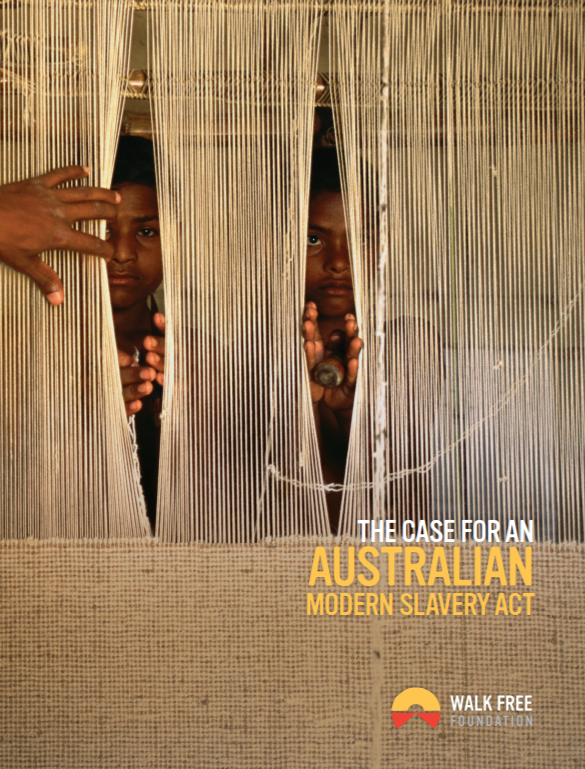Australia needs a “Modern Slavery Act” that addresses three issues as a priority:
- Anti-Slavery Commissioner – appointment of an Anti-Slavery Commissioner to provide independent oversight, with powers to monitor laws and hold business and the Government accountable.
- Modern Slavery Statements – requirement for large organisations doing business in Australia to annually report on steps taken to eradicate modern slavery within their organisation and supply chains.
- Central Repository – creation and maintenance of a publicly accessible
repository of all modern slavery statements filed each year.
By introducing an Australian Modern Slavery Act, the Australian Government has an opportunity to show leadership domestically and in the region to protect the victims of this atrocious crime and eradicate modern slavery.
An Australian “Modern Slavery Act” is needed as the next step to build on the existing voluntary initiatives, laws and international standards. It would address the unregulated gaps in global markets and harness the power of business to remove the profitability of modern slavery. Clear laws will level the playing field, so that companies doing the right thing or that are otherwise regulated by international laws (such as the UK Modern Slavery Act) are not undercut by unscrupulous companies or otherwise disadvantaged.
Legislation is a powerful tool to shape and change corporate behaviour. Laws are needed to respond to the growing calls from religious organisations, companies, civil society, investors, employees and consumers for more action to be taken to end modern slavery.
child labour

